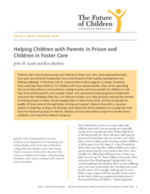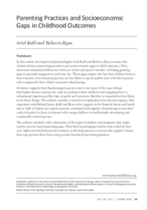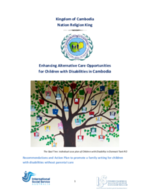Global Education Monitoring Report 2020 - Inclusion and Education: All Means All
The 2020 Global Education Monitoring Report recognizes the contexts and challenges facing countries in providing inclusive education; the groups at risk of being excluded from education and the barriers individual learners face, especially when various characteristics intersect; and the fact that exclusion can be physical, social (in interpersonal and group relations), psychological and systemic.




